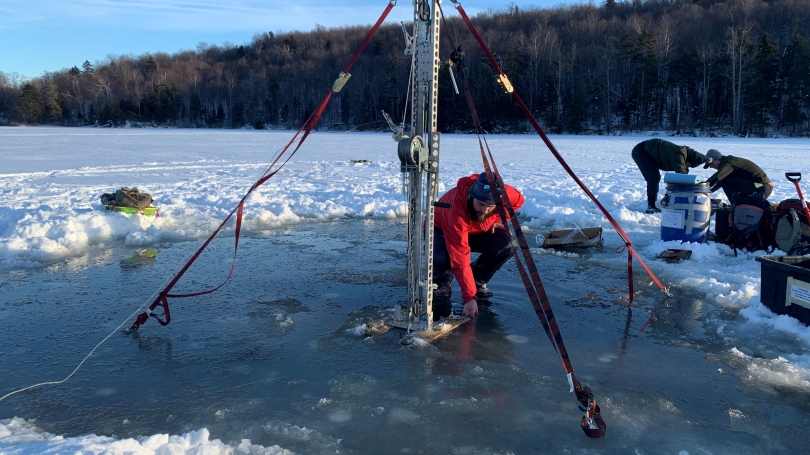
Students Collect Sediment Core on Smith Pond,NH as part of EARS15 - Earth's Climate - Past, Present and Future. Photo by Jason Berard, UVLT
- Undergraduate
- Graduate
- Research
- The Stretch
- Inclusivity
- News & Events
- People
Back to Top Nav
Back to Top Nav
Back to Top Nav
Back to Top Nav
Back to Top Nav